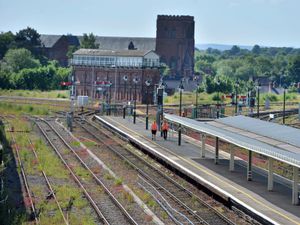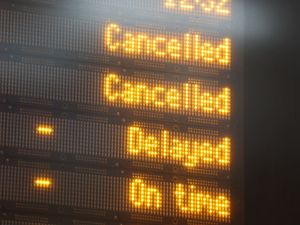When are the rail strikes? Dates, operators affected and why staff are walking out
Rail strikes are set to cripple the region's train services again this week, as the bitter dispute between rail unions and train companies remain unresolved.

After three days of walkouts last month, further strikes are in the pipeline for the rest of July and August, with over 40,000 rail workers set to walk out.
Three days of industrial action are being planned by members of the Rail, Maritime and Transport (RMT) union at Network Rail, along with 14 train operators, which are set to decimate train services across the country, especially in the lead-up to the Commonwealth Games. Some parts of the country will have no train services at all.
Members of the train drivers' union ASLEF and the Transport Salaried Staffs Association (TSSA) are also preparing to walk out, reducing the number of services running on several days over the next two months.
Speaking ahead of Wednesday's strike, RMT general secretary Mick Lynch said union members were more determined than ever to secure a decent pay rise, job security and good working conditions.
He said: "Network Rail have not made any improvement on their previous pay offer and the train companies have not offered us anything new.
"In fact Network Rail have upped the ante, threatening to impose compulsory redundancies and unsafe 50% cuts to maintenance work if we did not withdraw our planned strike action.
"The train operating companies have put driver-only operations on the table along with ransacking our members’ terms and conditions."
Andrew Haines, Network Rail chief executive, said: "Despite our best efforts to find a breakthrough, I’m afraid there will be more disruption for passengers this week as the RMT seems hell-bent on continuing their political campaigning, rather than compromising and agreeing a deal for their members."
Here's what you need to know about the upcoming strikes.
When are the strikes taking place?
The strikes are set to take place on July 27 and 30, and August 18 and 20. It's also likely that there will be continues disruption the day after each strike, as the reduced number of staff and services will have a knock-on effect.
The strikes on July 27, August 18 and August 20 involve members of the RMT, who walked out last month, while those on July 30 involve train drivers who are members of ASLEF.
What can commuters do?
Those planning to travel are asked to plan ahead and only travel if necessary. It's also a good idea to check the status of the train you are planning to travel on by visiting the website of your train operating company. Twitter and Facebook are also good platforms to check updates on.
Which operators are affected?
July 27
All UK train operators are likely to be affected, even if they are not directly part of the dispute involving RMT and TSSA members. Staff at Network Rail and the following 14 train operators will walk out for 24 hours:
Avanti West Coast
c2c
Chiltern Railways
Cross Country Trains
East Midlands Railway
Govia Thameslink Railway (including Gatwick Express)
Greater Anglia
Great Western Railway
LNER
Northern Trains
South Eastern
South Western Railway
Transpennine Express
West Midlands Railway
Operators for the Black Country, Staffordshire and Shropshire have all announced heavily reduced services on the day of the strike.
West Midlands Railway will be running a limited service between 7.30am and 6.30pm on just a handful of routes.
There will be one all-stations service per hour each way between Wolverhampton and Birmingham New Street, and one train per hour each way between Crewe and Birmingham New Street, stopping at Stafford, Penkridge, Wolverhampton, Smethwick Galton Bridge.
Two trains per hour will run on the Cross City Line between Lichfield Trent Valley and Birmingham New Street, with alternating services carrying on to Redditch and Bromsgrove.
West Midlands Railway trains will not be running on any other routes.
Transport for Wales has said it will not be running trains in Shropshire or Mid Wales on July 27, telling passengers "the industrial action resulting from the dispute between RMT and Network Rail means we’ll be unable to operate rail services on Network Rail infrastructure".
Avanti West Coast has said it will be running a significantly reduced timetable with "shorter hours of operation, less frequent services", warning that trains that do run are expected to be very busy. So far it has not published a strike timetable.
All three operators have warned passengers to only travel is necessary the day before and after the strike, when services are expected to be very busy.
July 30
Arriva Rail London (London Overground), Greater Anglia, Great Western, Hull Trains, LNER, Southeastern, West Midlands Trains (ASLEF members)
Saturday July 30
Train drivers' union ASLEF has called strike action across eight train operators on Saturday, July 30. Mick Whelan, general secretary of ASLEF, said the industrial action will mean "virtually no service" in the affected areas. The train operators involved are:
Arriva Rail London (London Overground)
Greater Anglia
Great Western
Hull Trains
LNER
Southeastern
West Midlands Railway
August 18, 20
Again, all UK train operators will most likely be affected due to the RMT strike involving the same operators as July 27.





